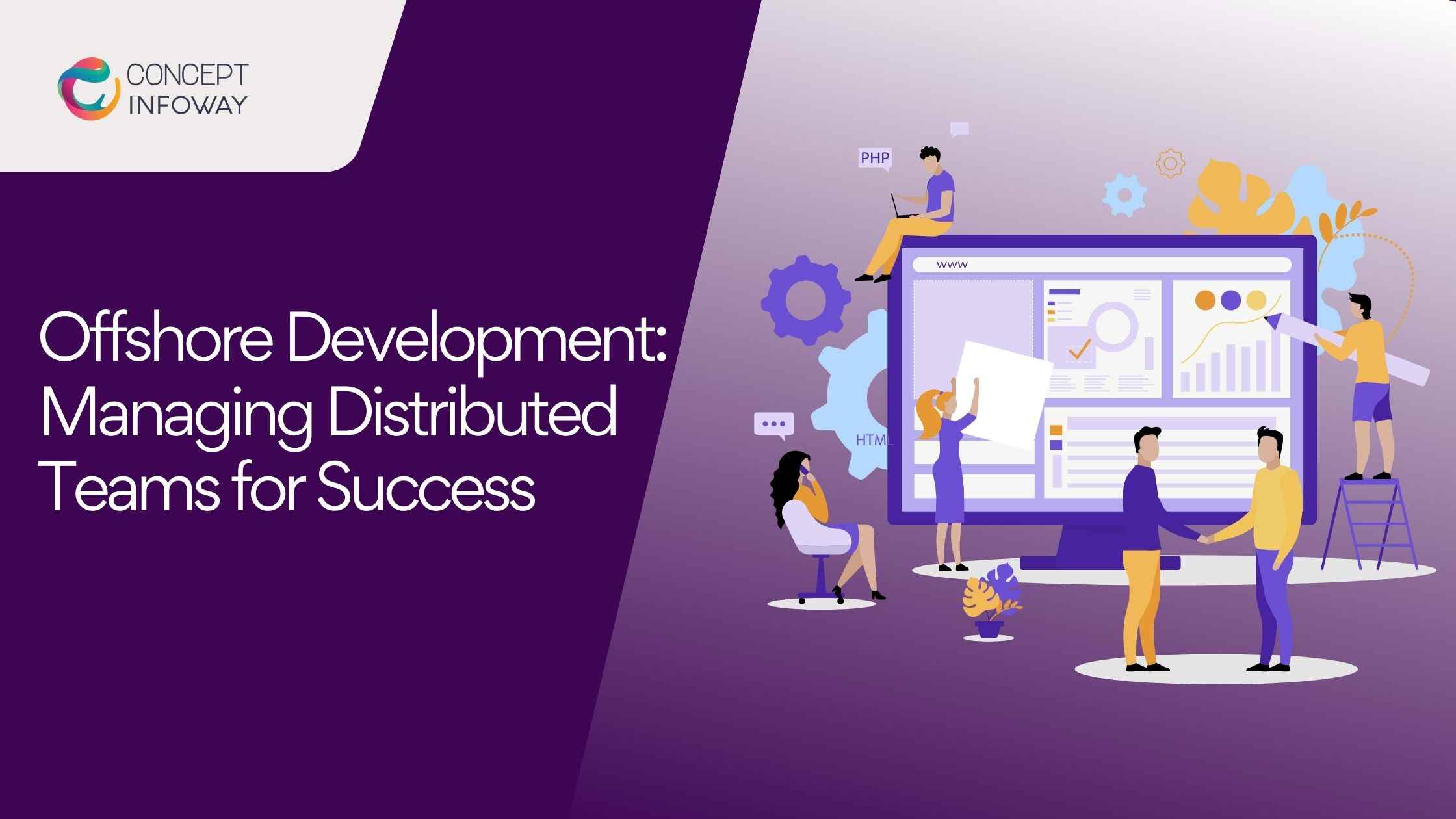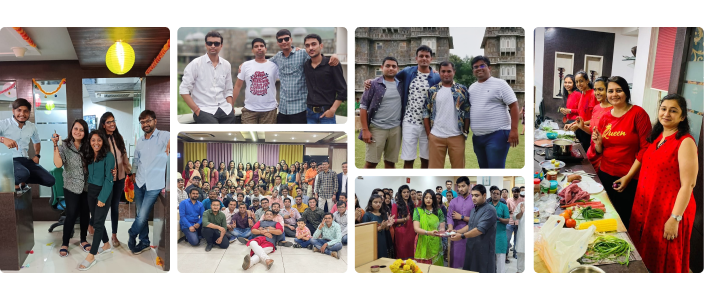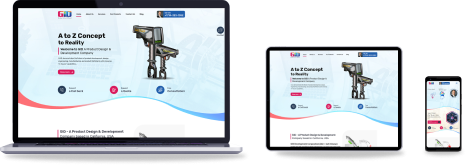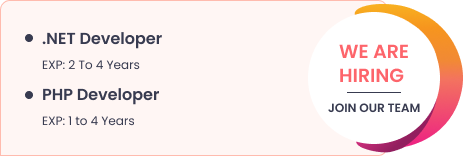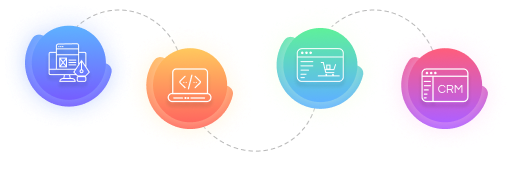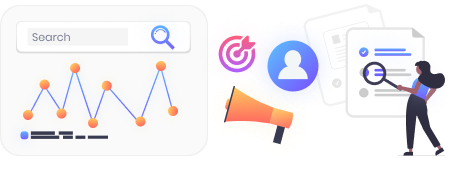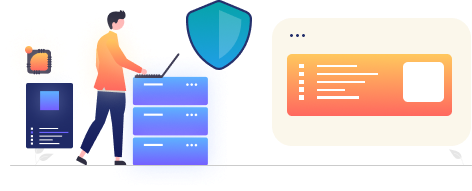
Types of Software for Custom CMS Development: What to Know
When embarking on a custom CMS (Content Management System) development project, one of the first and most crucial decisions is understanding the types of software that can best support your goals. The choice of the right software types influences the efficiency, scalability, and customization potential of your CMS solution. The types of software available for custom CMS development vary greatly, each offering unique features that can be leveraged depending on the complexity and requirements of your project. In this rapidly evolving digital landscape, staying updated on the latest types of software is essential for building a system that meets current and future needs.
Understanding the different types of software involved in CMS development helps businesses and developers make informed decisions. Whether you’re building a simple blog, an enterprise-level platform, or a specialized CMS, the types of software you choose will shape the functionality, user experience, and long-term success of your site. From open-source solutions to enterprise-grade frameworks, knowing the types of software to consider is critical in achieving the desired outcomes.
In this article, we’ll explore the different types of software typically used in custom CMS development, and why it’s important to understand software types to ensure the system you develop meets both performance and business goals. Additionally, we’ll discuss the types of various software available in 2024, helping you make the most appropriate choices for your CMS project.
Types of Software for Custom CMS Development
When considering the types of software for custom CMS (Content Management System) development, it’s essential to explore various platforms, each designed to meet specific business needs, scale, and functionality. Different software types come with their advantages and challenges, so it’s important to understand which platform aligns with your project goals. This section delves into four primary types of software used for custom CMS development: Open-Source CMS platforms, Proprietary CMS platforms, Headless CMS platforms, and Low-Code/No-Code CMS platforms. Each category has unique features, popular examples, and ideal use cases that can guide your decision-making process.
Read Also: Why Creating an eCommerce Website is Essential for Business Growth in 2024
Open-Source CMS Platforms
Key Features:
- Free to use and modify: Open-source CMS platforms are built on publicly available code, allowing businesses to customize the system according to their needs.
- Large and active community support: One of the main benefits of open-source software types is the robust community of developers and users who contribute to the ongoing improvement and troubleshooting of the platform.
- Extensive customization options: Open-source platforms offer flexibility, enabling you to build tailored solutions that fit your exact business requirements.
- Wide range of plugins and themes: With numerous third-party plugins and themes available, open-source CMS platforms allow for extensive functionality without the need to develop custom features from scratch.
Popular Examples:
- WordPress: The most widely used type of software for building websites, WordPress powers a substantial portion of the web, offering countless themes and plugins.
- Drupal: Known for its flexibility and security features, Drupal is a powerful software type often chosen for more complex websites.
- Joomla: A balance between ease of use and customization, Joomla is another software type widely adopted by businesses with intermediate content management needs.
When to Use:
- Small to medium-sized businesses: Open-source CMS platforms are perfect for companies with limited budgets but still require a feature-rich, customizable solution.
- Websites with basic content needs: For simple sites or blogs, the types of software in the open-source category are often sufficient.
- Organizations that value community support and cost-effectiveness: Companies that prioritize affordability and are comfortable with community-driven platforms will benefit from the types of software found in the open-source category.
Open-source CMS platforms are often the first choice for businesses looking for an affordable, flexible solution with the backing of a large support network. The types of software available within this category allow for wide-ranging customization, ensuring that businesses can meet both current and future demands.
Hire CMS Developers?
Contact Us Today!Proprietary CMS Platforms
Key Features:
- Hosted solutions with regular updates: Proprietary CMS platforms typically offer cloud-based hosting, which includes ongoing updates, security patches, and performance optimizations.
- Advanced security features: These software types are designed with enterprise-level security in mind, providing strong protection against threats and data breaches.
- Dedicated support teams: Proprietary CMS platforms come with professional customer service teams, ensuring businesses have dedicated support for troubleshooting and updates.
- Often cloud-based for scalability: Many proprietary solutions are designed to grow with your business, offering elastic scalability that accommodates increasing traffic and content demands.
Popular Examples:
- Sitecore: A leading proprietary CMS, Sitecore is known for its robust content management capabilities and personalization features, making it ideal for large enterprises.
- Adobe Experience Manager (AEM): A powerful software type for digital asset management and content delivery, AEM offers comprehensive solutions for businesses looking to deliver personalized experiences across multiple channels.
- Kentico: This platform provides a hybrid solution with both cloud-based and on-premise hosting, allowing businesses to choose the best deployment strategy for their needs.
When to Use:
- Large enterprises with complex content needs: Organizations with multiple stakeholders, a high volume of content, and various marketing channels can benefit from the comprehensive features of proprietary CMS platforms.
- Organizations prioritizing security and performance: These software types offer advanced security features and enterprise-level performance, which are essential for larger businesses.
- Businesses seeking a fully managed CMS solution: Proprietary platforms like AEM or Sitecore offer all-in-one solutions with hosting, updates, and support, making them ideal for companies looking for a hands-off approach to CMS management.
Proprietary CMS platforms are often the preferred choice for large organizations and enterprises that require comprehensive features, high security, and seamless integrations. The types of software in this category are perfect for businesses that want a fully managed experience without the need to manage software updates, security patches, and other technical aspects themselves.
Read Also: Why Hiring Expert CRM Developers is Key to Building a Customer-Centric Business
Headless CMS Platforms
Key Features:
- Decoupled architecture: In a headless CMS, the front-end (presentation layer) and back-end (content management) are separated, which provides greater flexibility in delivering content across multiple channels.
- API-first approach for content delivery: These software types focus on offering content through APIs, enabling the use of any front-end technology, which allows businesses to provide dynamic content on websites, mobile apps, or other digital platforms.
- Flexibility to use any front-end technology: Unlike traditional CMS platforms, headless CMS solutions allow businesses to build and scale content delivery without being restricted to a specific front-end framework.
Popular Examples:
- Contentful: A popular headless CMS that allows for flexible content management and delivery across multiple platforms.
- Strapi: Open-source and highly customizable, Strapi is one of the most flexible software types in the headless CMS category.
- Sanity: Known for its real-time collaboration features and flexibility, Sanity is a strong headless CMS choice for businesses seeking to manage content across a variety of channels.
When to Use:
- Omnichannel content delivery: If your organization needs to deliver content across multiple platforms (e.g., web, mobile, IoT devices), headless CMS solutions are ideal.
- Mobile-first and responsive websites: Headless CMS platforms allow businesses to create highly responsive, mobile-optimized websites by decoupling the content delivery system from the presentation layer.
- Organizations building custom digital experiences: For businesses focused on delivering unique digital experiences through custom-built front-end solutions, headless CMS platforms offer the flexibility and scalability required.
Headless CMS platforms represent a shift in the way content is delivered and managed. The software types in this category are perfect for businesses looking to build modern, responsive, and highly customizable digital experiences across multiple devices and channels.
Low-Code/No-Code CMS Platforms
Key Features:
- Drag-and-drop interface for easy content creation: These platforms allow users to create and manage content without writing code, making them accessible to non-technical users.
- Minimal coding required: Even for more advanced features, low-code/no-code CMS platforms require very little coding, enabling quick deployment.
- Rapid development and deployment: These software types are ideal for businesses that need to get a site up and running quickly, often with minimal investment in technical resources.
Popular Examples:
- Web flow: Known for its user-friendly interface and design flexibility, Webflow is a popular low-code platform used for building websites and e-commerce stores.
- Wix: One of the most popular no-code platforms, Wix provides an easy-to-use interface with templates that help businesses create functional websites quickly.
- Squarespace: Known for its sleek design options, Squarespace is an excellent no-code option for businesses looking for simple websites without much complexity.
When to Use:
- Small businesses and startups: These platforms are perfect for businesses with limited technical resources that need to create a website quickly.
- Non-technical users: For users who lack coding experience, low-code/no-code CMS platforms offer a way to design, build, and maintain websites independently.
- Websites with simple content requirements: These software types are ideal for websites that don’t need complex features, integrations, or customization.
Low-code and no-code CMS platforms represent the simplest software types, designed for speed and ease of use. These platforms are best for businesses that need to launch a website quickly without extensive development efforts.
Why Choose Concept Infoway for Custom CMS Development
When selecting a partner for custom CMS development, it’s important to choose a company that understands the intricacies of types of software and can deliver a solution that perfectly aligns with your business needs. At Concept Infoway, we stand out as a leading provider of custom CMS development services, offering a combination of deep technical expertise, innovative solutions, and a client-centric approach. Here’s why you should choose us for your next CMS development project.
Deep Expertise in Types of Software
Our team of experienced developers has a proven track record in delivering tailored CMS solutions. With years of experience working with various types of software, we have mastered the nuances of software types suitable for all kinds of CMS development needs. Whether it’s an open-source platform, proprietary CMS, headless CMS, or low-code/no-code solutions, we are well-versed in leveraging the best types of software for your project. Our expertise in types of software ensures that we deliver the most optimal, scalable, and secure CMS solutions, customized to meet your unique business requirements.
Cutting-edge Technology and the Latest Types of Software
At Concept Infoway, we believe in staying ahead of the curve by utilizing the most advanced software types and technologies available in the market today. Our developers are proficient in the latest CMS development frameworks and are constantly updating their skills to implement the most innovative types of software in the market. Whether it’s integrating artificial intelligence with your CMS, ensuring robust security protocols, or leveraging headless CMS solutions, we provide you with the cutting-edge technology needed to deliver superior performance and user experience.
We don’t just rely on traditional software types; we explore emerging types of various software that can enhance the functionality and scalability of your CMS. This allows us to offer modern solutions that can adapt to evolving business requirements and market trends.
Client-Centric Approach to Types of Software Selection
Understanding that every business has unique needs, we take a client-centric approach to selecting the right types of software for your CMS project. We collaborate closely with you to understand your content management requirements, website goals, and overall digital strategy. From there, we recommend the most suitable software types that will provide the best results for your business. Our team ensures that the CMS solution we develop not only meets your current needs but also positions your company for future growth by using flexible, scalable, and efficient types of software.
Comprehensive CMS Services
Concept Infoway offers a wide range of types of software and services, including CMS development, migration, customization, and ongoing support. Our comprehensive approach ensures that your CMS system is not only functional but also optimized for long-term success. We can help you migrate to the most suitable CMS platform based on your specific business needs, customize an existing CMS to better align with your workflows, and provide ongoing support to ensure your CMS remains up-to-date with the latest features and security patches. Our team is proficient in working with software types that suit both small businesses and large enterprises, offering tailored solutions that provide high performance and scalability.
Competitive Pricing Without Compromising Quality
At Concept Infoway, we offer cost-effective solutions across a range of types of software and CMS development platforms. We understand that price is an important consideration for many businesses, which is why we ensure that our services are competitively priced without compromising on quality. Whether you’re opting for a highly customizable open-source CMS or a proprietary enterprise solution, we provide solutions that offer excellent value for money, ensuring that your CMS project is both affordable and of the highest quality.
Our clients choose us not only because of our deep knowledge of software types but also because of our ability to balance quality and cost-effectiveness. With our comprehensive understanding of types of various software, we are can deliver a solution that is both high-performing and budget-friendly.
Frequently Asked Questions – FAQs
What are the three main types of software?
The three primary types of software are:
- System Software: This type of software manages the computer hardware and resources. Examples include operating systems (like Windows, macOS, Linux), device drivers, and utilities.
- Application Software: Designed to perform specific tasks for users. Examples include word processors, spreadsheets, web browsers, and media players.
- Programming Software: Used by developers to create software. This includes compilers, interpreters, debuggers, and text editors.
What are the 10 types of system software?
Here are 10 common types of system software:
- Operating Systems: Manages hardware and software resources.
- Device Drivers: Controls specific hardware devices.
- Utilities: Performs maintenance and optimization tasks.
- BIOS (Basic Input/Output System): Initializes hardware during boot-up.
- Firmware: Embedded software in hardware devices.
- Bootloader: Loads the operating system.
- Kernel: Core component of the operating system.
- Shell: User interface for interacting with the operating system.
- File System: Manages file storage and organization.
- Network Operating System: Manages network resources and communication.
What are some popular types of application software?
Some popular types of application software include:
- Productivity Software: Word processors, spreadsheets, presentation software
- Multimedia Software: Media players, video editors, image editing software
- Web Browsers: Used to access the internet
- Database Software: Organizes and stores data
- Communication Software: Email clients, messaging apps, video conferencing software
Can you explain the difference between system software and application software?
System software is essential for the computer to function, managing hardware and software resources. Application software, on the other hand, is designed to perform specific tasks for users. System software provides the foundation for application software to run.
What are some factors to consider when choosing the right type of software for a specific task?
When choosing software, consider the following factors:
- Compatibility: Ensure the software is compatible with your hardware and operating system.
- Functionality: The software should meet your specific needs and requirements.
- User-Friendliness: A user-friendly interface can save time and effort.
- Cost: Evaluate the cost of purchasing or licensing the software.
- Security: Consider the software’s security features to protect your data.
- Support: Reliable customer support can be helpful in case of issues.
What is custom CMS development?
Custom CMS development involves building a content management system from scratch or tailoring an existing platform to fit unique business needs. Unlike generic CMS platforms, custom CMS solutions offer greater flexibility, performance, and security. Concept Infoway specializes in custom CMS development, helping businesses manage content efficiently while integrating advanced functionality and scalability.
What type of software is CMS?
A CMS, or Content Management System, is software that allows users to create, manage, and modify digital content without needing advanced technical skills. It falls under web application software, often combining backend (admin panel) and frontend (user interface). Concept Infoway provides expert custom CMS development services to ensure your CMS is tailored to your exact business and operational needs.
What is the most common type of CMS?
The most common CMS platforms include WordPress, Joomla, and Drupal. However, these may not suit every business. For unique requirements, a custom CMS is the ideal solution. Concept Infoway offers custom CMS development to build tailored content systems that offer more control, better performance, and specific features that off-the-shelf CMS platforms can’t deliver.
Conclusion
Choosing the right partner for custom CMS development is critical to your digital success. At Concept Infoway, we are proud to be a trusted leader in the CMS development space, offering in-depth knowledge of types of software and an unwavering commitment to delivering exceptional results. By leveraging the latest software types, a client-centric approach, and cutting-edge technologies, we provide tailored CMS solutions that help your business thrive in the competitive digital landscape. Let us be your partner in creating a custom CMS that not only meets your needs but exceeds your expectations.
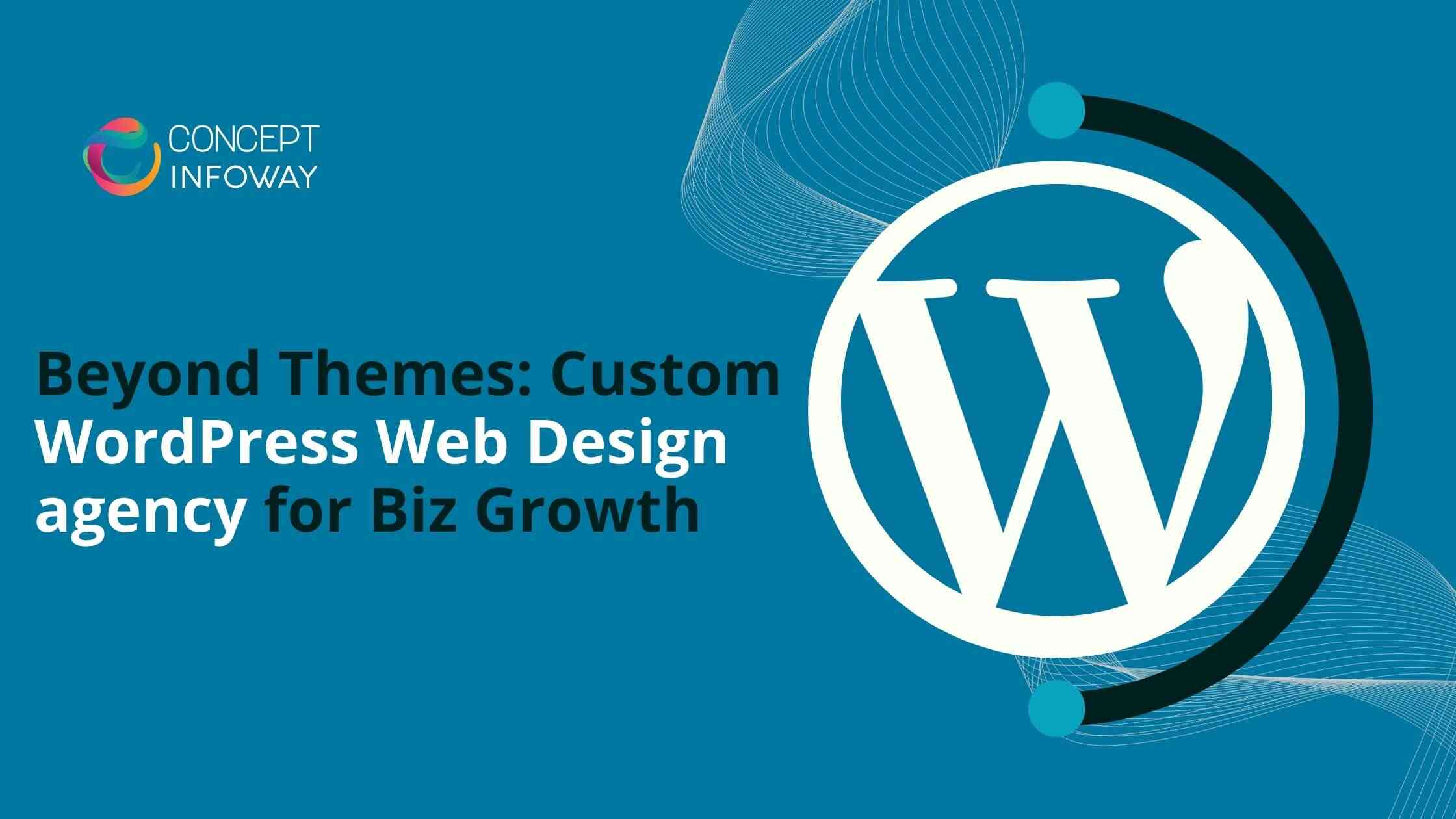
Beyond Themes: Custom WordPress Web Design for Biz Growth
